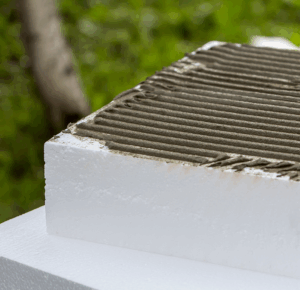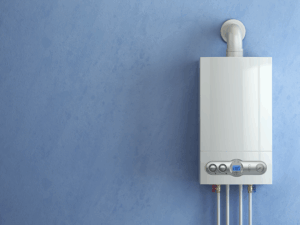Are Condensing Boilers the Future of Home Heating?
These advanced heating systems don’t just generate heat—they capture and reuse energy that would usually be lost in traditional boilers. The result? Lower utility bills, reduced environmental impact, and reliable warmth all winter long. If you’ve been wondering whether condensing boilers could be the future of home heating, it’s worth understanding how they work and why so many homeowners are making the switch.
How Condensing Boilers Work
In a regular boiler, some of the heat you pay for escapes through the exhaust, which means wasted energy. A condensing boiler is designed to capture that lost heat and put it back to work in your home. It does this by using a special system that takes warmth from the exhaust, turns the steam into water, and recycles that extra heat.
Think of it like getting a “second use” out of the same fuel—you’re squeezing more warmth out of every dollar you spend on heating. This is why condensing boilers are often much more efficient than standard models and can help lower your energy bills.
Benefits of Condensing Boilers
- Exceptional Energy Efficiency: Because they recover and reuse heat, condensing boilers use less fuel than standard systems. Over time, that can translate to substantial savings on your heating bills.
- Lower Carbon Footprint: Using less fuel also means producing fewer greenhouse gas emissions. Choosing a condensing boiler is not only suitable for your home—it’s good for the planet.
- Versatile Heating Applications: Condensing boilers can be used to heat floors, radiators, and domestic hot water systems, making them an excellent option for a variety of home layouts and needs.
- Compact, Space-Saving Design: Many models are wall-mounted and lightweight, freeing up valuable space in your utility room.
- Quiet Operation: Modern condensing boilers operate at low noise levels, making them ideal for homes where the boiler is located near living spaces.
Are They Right for Every Home?
While condensing boilers offer impressive efficiency, they’re most effective in homes with low-temperature heating systems, such as in-floor radiant heating or modern radiators. That’s because the cooler return water temperature allows the condensing process to work at its best.
For older homes with traditional high-temperature radiators, the efficiency gains may not be as dramatic without some system upgrades. However, even in these cases, a condensing boiler can still provide energy savings compared to non-condensing models.
Comparing Costs and Long-Term Savings
A condensing boiler may cost more upfront than a standard boiler, but it can save you money in the long run. That’s because it uses energy more efficiently, which means lower monthly heating bills. In many cases, the extra investment pays for itself within a few years—and you might also qualify for government rebates or incentives that make the switch even more affordable.
To put it simply, a standard boiler wastes more heat, while a condensing boiler makes better use of the energy it burns. Over time, that difference adds up—especially if you live in a colder climate where heating is a big part of your yearly expenses.
Why Professional Installation Matters
To get the most from your condensing boiler, professional installation is key. An experienced HVAC technician will ensure the system is appropriately sized for your home, installed according to safety codes, and optimized for maximum efficiency.
Working with a trusted local provider like Ashton Heating & Cooling means you’ll get expert advice, quality products, and reliable service from a team that’s been serving Durham Region for over 15 years. We also provide regular servicing and repairs to keep your boiler running at peak performance year after year.
If you’re ready to explore whether a condensing boiler is right for you, contact us today. We’ll assess your home’s heating needs, recommend the best system for your situation, and ensure its installed for peak performance.















